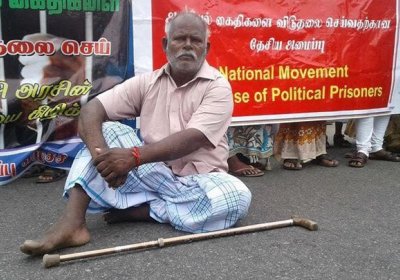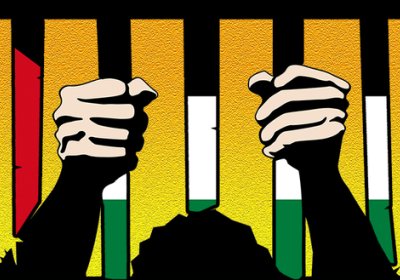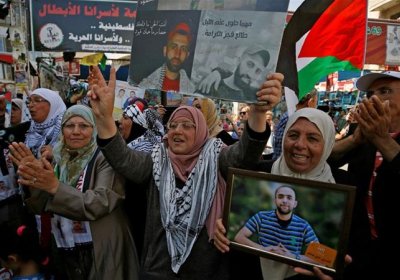This week marks the 100th day of hunger strikes by Mapuche spiritual leader Celestino Córdova and 27 other Mapuche imprisoned by the Chilean state for protesting their removal from their land and community, writes Pedro Alvarez.
Hunger strikes
Can music start a revolution? The Turkish government clearly thinks so, judging by its treatment of the radical socialist musicians who play as Grup Yorum, writes Sarah Glynn.
Hunger strikes by detainees at Yarl’s Wood immigration detention centre in Bedfordshire — one of 13 detention centres in Britain — ended after a month on March 22. However, campaigners have vowed to continue protests.
More than 200 detainees at detention centres in Villawood in Sydney and Maribyrnong in Melbourne, were on hunger strike for five days from January 15–19 in protest at visitor restrictions announced by Border Force.
Beginning January 22, visitors will have to give five days’ notice of any visit and fill in a five-page form, with actual visits restricted to one-on-one.
Visitors will be required to provide 100 points of identification.
The predominantly Tamil northern province of Sri Lanka was at a “complete standstill” on October 13, according to Tamilnet. All public and private businesses were shut down.
The strike was called by 20 grassroots movements to demand the unconditional release of all Tamil political prisoners.
Protesters blocked the A9 highway, and blockaded the secretariat of the Colombo-appointed governor of the Northern Province.
The next day protesters with black flags confronted Sri Lankan president Maithripala Sirisena who was visiting a school in Jaffna.
Students and staff of Jaffna University rallied on October 4 in support of three Tamil prisoners who are on hunger strike.
The prisoners are accused of having been members of the Liberation Tigers of Tamil Eelam, which fought for an independent Tamil homeland in the north and east of the island of Sri Lanka, until defeated in May 2009. The Sri Lankan government’s victory was accompanied by a genocidal massacre of tens of thousands of Tamil civilians.
The hunger strike launched in April by more than 1500 Palestinian prisoners ended on May 27 when the Israeli Prison Service (IPS) agreed to key concessions to improve the prisoners’ conditions.
The announcement of the end of the 41-day hunger strike, coinciding with the start of Ramadan, was greeted with relief and joy by prisoners’ families and supporters across Palestine and the world. By the time the deal to improve conditions to end the hunger strike was struck, about 800 prisoners were still participating.
After 40 days without food, hundreds of Palestinian prisoners have suspended their hunger strike in Israeli jails.
The end of the strike came after 20 hours of intense negotiations between the strike’s leaders, including imprisoned Fatah figure Marwan Barghouti, and the Israel Prison Service, according to a statement issued on the morning of May 27 by the prisoners solidarity committee.
The mood in Turkey is low, and not just among those who oppose President Recep Tayyip Erdogan and his Justice and Development Party (AKP). Even some of his supporters are disoriented by developments in the country.
In the aftermath of the failed coup of July 15 last year, Erdogan orchestrated the dismissal of tens of thousands of government employees. The figures from the ongoing Turkish purges are startling.
Fans of Glasgow’s Celtic football club showed their support for more than 1500 Palestinian prisoners on hunger strike in Israeli jails, with large banners and Palestinian flags at Celtic’s May 6 football (soccer) match against fellow Scottish side St Johnstone FC.
Members of Celtic’s “ultras” fan group, the Green Brigade, along with Celtic Fans for Palestine, lifted a huge Palestinian flag, as well as large banners with the slogans “Freedom and Dignity” and “Hungering for Justice”.
The demands of the hunger strikers are for basic civil rights. There are 6500 Palestinian prisoners held by Israel, including 300 children. About 500 are being held under “administrative detention” — meaning they are held without trial by court orders that can be renewed indefinitely.
Despite the scale of the hunger strike and huge popular support enjoyed by the prisoners and their campaign for “freedom and dignity”, Israel shows no signs of acceding to any of the prisoners’ demands to end their ill-treatment.
A young Palestinian man became the first victim of the open-ended hunger strike launched 1600 Palestinian political prisoners in the occupied West Bank on May 1. The 30-year-old, identified as Mazan al-Maghrebi, passed away at his home in the city of Ramallah, where he was on hunger strike in solidarity with the prisoners.
- Page 1
- Next page











